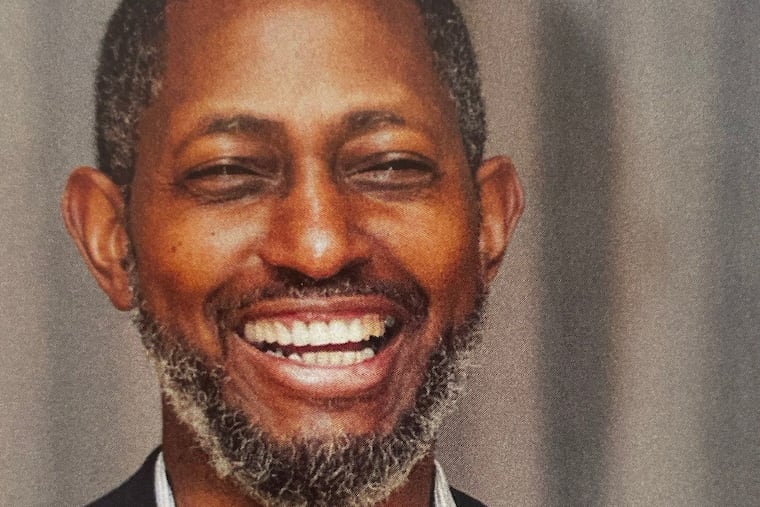Ernie Bennett, longtime Philadelphia school building engineer, union leader, has died at 66
Mr. Bennett fought fiercely — up to and including acts of civil disobedience — for the things he believed in.

Ernie Bennett, 66, of North Philadelphia, a longtime city school building engineer, community activist, and labor leader, died Sunday, Sept. 18, of complications of a bacterial infection at Lankenau Hospital.
Mr. Bennett was born in North Philadelphia, the son of Ophalie and James Wendell Bennett Sr. He was a natural leader from a young age, a quality that he soon recognized could be used for the greater good — or not. Mr. Bennett was candid about his time in the juvenile detention system, which ultimately set him on a path of service.
After receiving a second chance, Mr. Bennett set about using it well. He became a mentor in the Neighborhood Youth Corps, earned his GED, and worked to support his children — he had five — and support his community in myriad ways.
Mr. Bennett began his career at All Aluminum Products, then turned to the health-care industry, working his way up to supervising the housekeeping and laundry departments at Tucker House.
But Mr. Bennett spent most of his working life at the School District of Philadelphia, where he worked as a cleaning leader and, for more than 30 years, as a building engineer, serving at multiple schools. (His favorites were Clymer Elementary, in North Philadelphia, and Widener Memorial, the district’s school for children with disabilities, in Olney.)
Labor rights were always important to Mr. Bennett, and he quickly became active in SEIU 32BJ District 1201, first as a shop steward and ultimately district leader and a member of the 32BJ executive board from 2015 until his retirement in May.
Mr. Bennett fought fiercely — up to and including acts of civil disobedience — for the things he believed in. In 2012, when the district, teetering on the brink of financial insolvency, threatened to lay off 2,700 members of 32BJ, Mr. Bennett was part of a group that took to the streets for a peaceful protest. He and other leaders were arrested for blocking traffic after they sat in the middle of Broad and Race Streets and refused to budge as a way to draw attention to the district’s threats.
“We didn’t create this deficit,” Mr. Bennett said before his arrest. “We should not be held accountable for the mismanagement of these people in here.”
Ultimately, 32BJ, which represents schools’ lowest-paid workers, made painful but important concessions that district officials said at the time were crucial to keeping the system afloat.
Mr. Bennett also advocated in City Hall, Harrisburg, and Washington for fair funding for Philadelphia schools and for the end of the state takeover of the district. When the pandemic hit, Mr. Bennett worked to ensure his members had the tools they needed to keep the district running during the public-health emergency.
And he often spoke out for building safety, especially after the death of Chris Trakimas, a fellow building engineer who was killed when a boiler exploded at a city school.
If a worker was being taken advantage of, Mr. Bennett would show up, said Rich Lazer, Philadelphia’s deputy mayor for labor, at Mr. Bennett’s funeral.
“He was one of the most genuine people I ever met,” Lazer said. “He led from the front, and that’s what a true leader is — I always admired him for that. He never asked somebody to do something he wouldn’t do first; he would never push something he didn’t believe in.”
Mr. Bennett mentored John Bynum, current 32BJ leader, keeping tabs on the status of the 32BJ contract, ultimately settled in August with historic raises and more safety training for workers.
“He told me, ‘This has to happen, this will be my legacy,’” Bynum said. “He always said, ‘Put the membership above yourself. That’s what this job is about.’”
Mr. Bennett also devoted time to working to better his community, particularly through his involvement with organizations like the 21st Street Community Development Corporation, of which he served as president for a time, and the Men Against Violence Network, which chose him as a national spokesperson. He was also president of the Valley Management Corporation, a group of Philadelphia men and women that fought turf wars in the city in the 1960s and ‘70s and worked to bring honor, self-esteem, and respect back to the community.
“His life meant something to Philadelphia,” City Councilmember Curtis Jones Jr. said of Mr. Bennett. “I pray for 1,000 more Ernie Bennetts to take his place in our streets and in our community.”
But as important as he was to the city, at work and to the labor movement, Mr. Bennett was even more central to his family.
Mr. Bennett met his wife, Eugenia, in 1979. Jeanie wasn’t sure about “Big Ern” at first, but his charm and persistence won her over; they were married in 1981 in a service performed by his father. The two were a strong pair, and their home was a loving place, a refuge for many. Like his mother, Mr. Bennett opened his home to people in need — the Bennett house often had an extra person or two.
“He was always teaching lessons,” said Mr. Bennett’s son Ernie Jr. He fixed the girls’ hair and bought the boys their first suits. He attended every game, cheering the loudest.
Dozens of nieces and nephews and surrogate children all have stories about acts of kindness Mr. Bennett provided for them, no matter what they needed.
A deeply spiritual man, Mr. Bennett practiced the Islamic faith but respected all religions. He kept every letter, card, and citation ever given to him.
In addition to his wife and his son, Mr. Bennett is survived by his children Charles Dickens, Brandon Graham, Nadiyah Gause, and Khalifah Bennett; 10 grandchildren; and sisters Doriene Tyler, Jacqueline Hughes, Sylvia Bennett, Francis Kent, and Martha Dickens.
Services were Sept. 30.